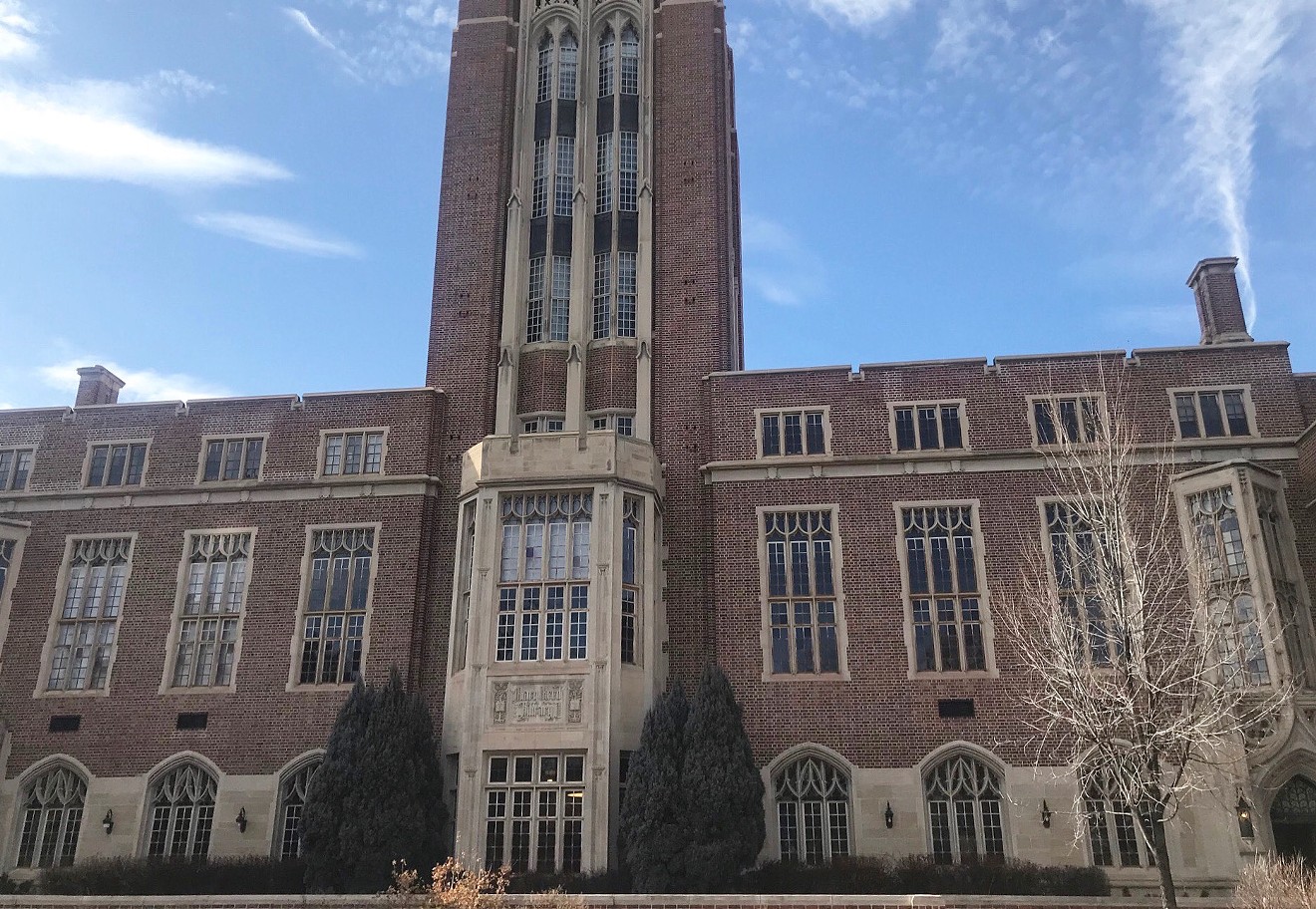What began as a campaign to make the University of Denver administration change its policies on sexual assault and gender violence has gone national.
The Instagram account @wecandubetter began as a way for the DU community to anonymously share allegations of sexual assault and gender violence on campus. But now the account's creators have decided to ramp up their efforts, introducing the Do Better Campaign and revealing their identities.
“We were getting threats from users that were naming us, and we still don’t know how they found out,” says Shannon Saul, one of the account's creators. “But we decided to reclaim that narrative. If they wanted to threaten us, they could do it to our faces.”
“The account was started to focus on issues that are DU-specific, but really, the issue is everywhere,” adds Grace Wankelman, another creator. “On a national level, it can be hard to enact change if there’s not a bigger campaign out there. We need both a national campaign and national change for this issue.”
In response to @wecandubetter’s call for change, DU released an action plan on March 5, detailing policy shifts that are already under way, as well as the goals that the administration plans to achieve by this fall. In a letter attached to the plan, DU Chancellor Jeremy Haefner expressed disappointment in the administration’s handling of sexual assault and gender violence incident in the past, and also promised to promote a campus where students feel safe.
“Since we sat down together this past month, I have been thinking a great deal about the painful stories you shared and how deeply saddened and disturbed I am that DU has let survivors down,” Haefner says in his statement. “You showed us some truths about ourselves that are very much at odds with who we want to be. I am determined and fully committed — as are senior leaders across campus — to making changes so that we can better support survivors and create a healthier, safer and more positive culture for all students.”
Immediate changes include more foot patrols by Campus Safety, implementing trauma-informed training for administrators, and having the Title IX office report directly to the chancellor’s office instead of the Vice Chancellor of Human Resources, as it had done in the past.
“The chancellor made the decision on having our office report to him directly,” explains DU Title IX Coordinator Jeremy Enlow. “He wanted visible action to show the student body that he cares deeply about this and wants to learn more about Title IX.”
By the beginning of the fall quarter, DU plans to provide four years of gender-based-violence education for all undergraduate students, implementing mandatory intervention for undergraduate and graduate students as well as improving timeliness of keeping anyone making a complaint posted on the status of Title IX investigations. According to Enlow, the plan is meant to carry on past fall 2020 and create permanent change.
“The response is a long-term commitment made by the university,” he says. “This isn’t something that’ll be six months and we call it 'mission accomplished.' We’ll be going back to the document and checking if we’re meeting all our goals.”
Saul, Wankelman and Madeline Membrino, the third member of the Do Better Campaign, released a response the same day the action plan was announced, thanking Haefner and the DU administration for listening to suggestions on policy changes and welcoming feedback. Still, further improvements need to be made, they said, including having administrators make it a priority to hire officers of color and female officers on the Campus Safety team, a request that they'd made back in January.
“Every student should feel like they’re protected by someone who can relate to them,” says Wankelman.
“The chancellor explained that they pull Campus Safety officers from the same pool as the Denver police,” adds Membrino. “So representation can be difficult if our administration isn’t reflecting the diversity of the student body.”
DU's administration strives to have a diverse employee base reflective of the community and has been increasing efforts to keep that promise, Enlow says. “We are increasing efforts to increase diversity,” he adds. “One way is posting job ads that minority advocates frequent. We try to ensure that we get a diverse enough pool of applicants by doing steps like this.”
While DU continues to work on its policy changes, the Do Better Campaign is reaching out to other colleges by posting anonymous stories from universities such as Oregon State and the University of Miami. The long-term goal is to eventually become a nonprofit that will work nationwide.
“We’re still in the process of figuring everything out, but we do know that the best use of our time and the best way to implement our goals is to become a nonprofit,” says Saul. “But for now, registering as an LLC allows us to potentially own an office and a bank account, and we can be hired to speak at events.”
“At the end of the day, we want to be a resource and give information out to DU and other campuses that we wished we had when we needed,” adds Wankelman. “Regardless of any negative feedback we could get, the outpouring of support we’ve gotten is worth more. Our community has been overwhelmingly supportive, and we want to keep doing more.”
[
{
"name": "Air - MediumRectangle - Inline Content - Mobile Display Size",
"component": "12017618",
"insertPoint": "2",
"requiredCountToDisplay": "2",
"watchElement": ".fdn-content-body",
"astAdList": [
{
"adType": "rectangle",
"displayTargets": "mobile"
}
]
},{
"name": "Editor Picks",
"component": "17242653",
"insertPoint": "4",
"requiredCountToDisplay": "1",
"watchElement": ".fdn-content-body",
"astAdList": [
{
"adType": "rectangle",
"displayTargets": "desktop|tablet"
},{
"adType": "rectangle",
"displayTargets": "desktop|tablet|mobile"
}
]
},{
"name": "Inline Links",
"component": "18838239",
"insertPoint": "8th",
"startingPoint": 8,
"requiredCountToDisplay": "7",
"maxInsertions": 25
},{
"name": "Air - MediumRectangle - Combo - Inline Content",
"component": "17261320",
"insertPoint": "8th",
"startingPoint": 8,
"requiredCountToDisplay": "7",
"maxInsertions": 25,
"watchElement": ".fdn-content-body",
"astAdList": [
{
"adType": "rectangle",
"displayTargets": "desktop|tablet"
},{
"adType": "rectangle",
"displayTargets": "desktop|tablet|mobile"
}
]
},{
"name": "Inline Links",
"component": "18838239",
"insertPoint": "8th",
"startingPoint": 12,
"requiredCountToDisplay": "11",
"maxInsertions": 25
},{
"name": "Air - Leaderboard Tower - Combo - Inline Content",
"component": "17261321",
"insertPoint": "8th",
"startingPoint": 12,
"requiredCountToDisplay": "11",
"maxInsertions": 25,
"watchElement": ".fdn-content-body",
"astAdList": [
{
"adType": "leaderboardInlineContent",
"displayTargets": "desktop|tablet"
},{
"adType": "tower",
"displayTargets": "mobile"
}
]
}
]











